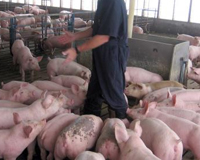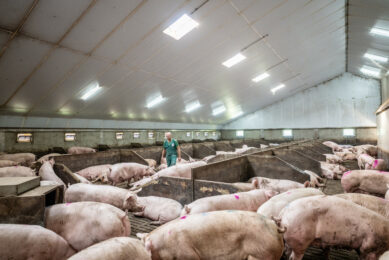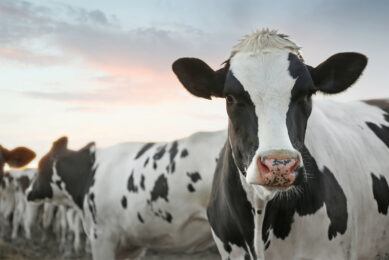Only reducing antibiotics is not sufficient to eliminate MRSA at pig farms

It is not sufficient to only reduce the usage of antibiotics in an attempt to eliminate the existence of Methicillin Resistant Staphylococcus aureus (MRSA) at pig farms. This is the core message of Dr Els Broens, Wageningen UR, the Netherlands, who obtained her PhD with this study.
The bacteria managed to spread rapidly in the Dutch pig industry – and it is considered very likely that the widespread usage of antibiotics played a role in this spread.
In 2007, MRSA was found in 30% of pig farms – at the end of 2008 this level had grown to 75% of all farms, Broens said. Especially larger pig farms (500 sows and more) proved to be positive for MRSA.
The bacteria moved from farm to farm on animal transports – and many pigs get infected when being transported to the slaughterhouse too, as the bacteria may be present in other pigs or the animal transport vehicle. Pig producers and slaughterhouse staff can also become infected when dealing with live animals. Broens said there is no risk for employees working with dead pigs.
To avoid the transfer of MRSA from pigs to humans, the bacteria ought to be tackled at its source – at the farm, she said. This means decreasing the use of antibiotics will not eliminate MRSA presence, as resistant bacteria populations can still spread and maintain themselves in pigs that are not fed antibiotics. Apart form a reduction of antibiotic usage, Broens called for more hygiene to prevent the spread on farms and between them. This would require a joint approach uniting producers, politicians, retailers and veterinarians.
Broens’ PhD study is called “Livestock-associated MRSA methicillin resistant Staphylococcus aureus in pigs – prevalence, risk factors and transmission dynamics.”
Related website:











